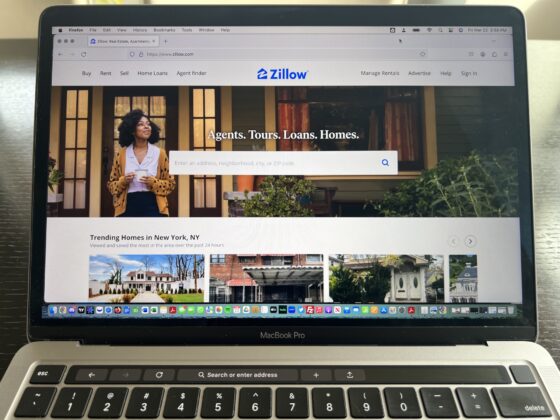Table of Contents Show
It helps to be thorough in your evaluation before accepting an offer from a buyer when selling real estate. Of course, the offer price is paramount, especially if an all-cash offer. But even then, there are a few more things you’ll want to consider. For instance, If the building is a co-op, you’ll need to consider board approval. If the buyer is financing the purchase, you must ensure they have a good chance of being approved. When they go wrong, these situations can tank a deal in less time than it takes to sign your name.
As much as we’d love to accept the first fat check that comes our way, sometimes it’s in our best interest to say no and wait for another offer. Here are some crucial questions to help you determine when this is the case.
Questions About FinancingQuestions About Financing
Every seller wants a smooth and fast transaction. But, when considering an offer to purchase with the help of a mortgage, you have to be sure they’ll be approved. One good sign is an offer with a pre-approval letter from the buyer’s bank or mortgage company. However, don’t consider this a reliable guarantee. A pre-approval letter only tells you the bank has taken a minor look at the buyer’s finances and determined they will likely be approved, typically within a 90-day window. Don’t confuse this with a pre-qualification letter, a better mark of a buyer’s creditworthiness.
Still, it’s a good start. To better understand how strong their offer is, ask how much money remains after making a down payment? What bank or mortgage company will they be using? What interest rate would they consider acceptable? All these and more play a big part in determining an offer’s viability.
Another concern will be whether or not the buyer wants a mortgage contingency included in the contract? Again, this is a fairly standard request, but you should be wary if they ask for a longer time limit than the typical 30-45 days. It’s not exactly a red flag, but it should raise some eyebrows and require more probing to determine the buyer’s likelihood of being approved. If they fail to get approved, you’ll have lost precious time by taking your home off the market.
Questions About Board ApprovalQuestions About Board Approval
Even a buyer with guaranteed financing or an all-cash offer still has another step to overcome if purchasing the home is in a co-op building. The building’s board has to sign off on the sale before it can be finalized, and they take a lot into account before deciding. So as a seller, you’ll be doing yourself an immense favor by determining how likely a buyer is to pass the board approval process.
Key questions to ask include:Key questions to ask include:
- Their Debt-to-Income Ratio – Your co-op board will have an acceptable range of below 30%, and you’ll want to be sure the buyer falls within it.
- Their Occupation and Job Security – Your buyer’s choice of occupation will play a big part in determining how likely they are to receive board approval. Typically, you want to see a buyer employed in their current position for at least 1-2 years. If the buyer is self-employed and works from home, that’s a potential red flag. Most boards will be wary of accepting a buyer that can’t demonstrate job security and consistent bank deposits.
- Their Letters of Recommendation – These letters carry a great deal of weight, with most boards requiring at least five letters per applicant. Usually, the buyer’s broker will be responsible for ensuring these letters are picture-perfect. But your broker will also want to check that they meet all the criteria and assist the buyer’s broker in tailoring them to the board’s specific needs.
Questions About their Overall Financial PositionQuestions About their Overall Financial Position
This ties in with the previous point and tells you more about the buyer’s current financial position. Next, have your broker ask the buyer to complete a financial disclosure statement. A REBNY financial statement will give you a more accurate picture of their finances and tell you about the buyer. For instance, you’ll know whether they currently have a home and need to sell first or if they are renting.
Determining the buyer’s aims with the property will also be an essential step. Most co-op boards don’t look favorably on investment properties. In some cases, they restrict Pied-a-Terre or parents for their children. If the buyer has a pet, that might be a concern if the board has no-pet rules.
Questions About their Home SearchQuestions About their Home Search
A big part of deciding between offers is distinguishing between serious buyers and “real estate tourists.” The latter can be substantial time-wasters without the intention of ever making an offer. Instead, they appear at open houses and feign interest because they either have nothing better to do or want to find ideas for their own home.
Asking about a buyer’s home search up until now can give you some important clues about how serious they are in making an offer. For a start, ask how long they’ve been looking? If their answer is a year or more, they’re either very difficult to work with or aren’t sure what they’re looking for. Next, ask what they’re looking for in an apartment and where else they’re looking? If their answers are specific and consistent, they’ve likely thought very hard about it and want to make an offer.
What about their timescale? Do they need to close soon, or might they drag out the transaction? Even when an offer is serious, you’ll want to ensure the buyer’s timescale for closing is similar to yours. Figuring all of this out early on can alert you to what to expect if you agree to their offer. For instance, maybe you want to close as soon as possible on the home and need to remain in the home for a limited time. Will that work for the buyer, or will it likely be an issue later?
Questions About the Buyer’s PlansQuestions About the Buyer’s Plans
Does the buyer want any repairs or alterations to be made before the sale goes through? If so, are you prepared to meet these conditions? Even if you’ve included an inspection contingency to cover you against this eventuality and the deal falling through, that still doesn’t make up for the time you’ve lost. The point is that you need to find a buyer whose offer is compatible with your intent to sell. What are your priorities for selling, and do they match up with the buyers? Every deal will have a bit of friction to be worked out. But if there are major disagreements in needs and priorities, you’re only setting yourself up for trouble.
This last point is where having a talented real estate broker can pay off. They’ll have a thorough understanding of your needs and how to recognize when an offer matches them. Sometimes it’s worth holding out for a better offer when they don’t match.







